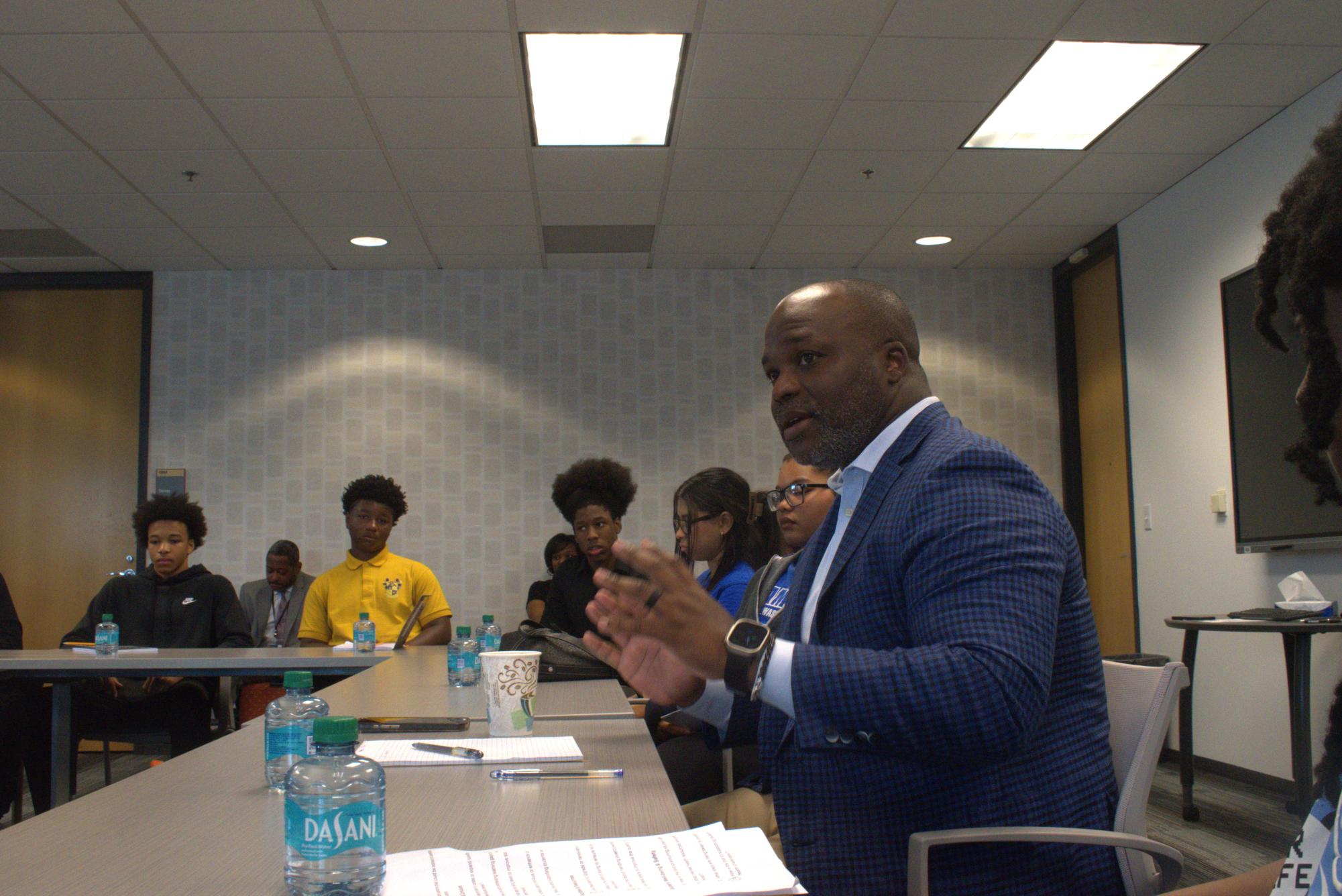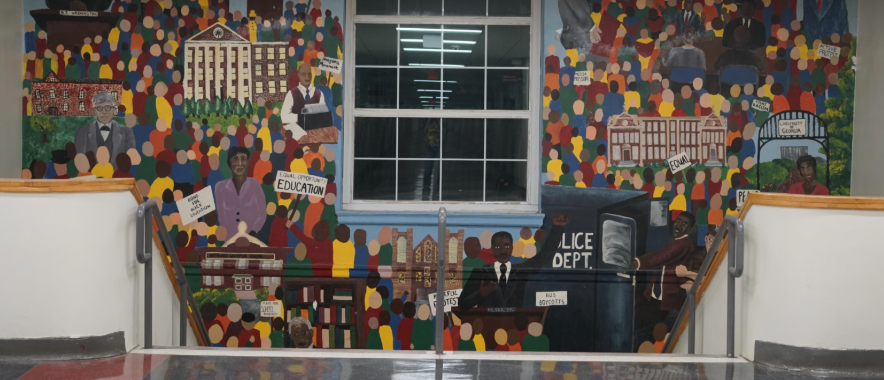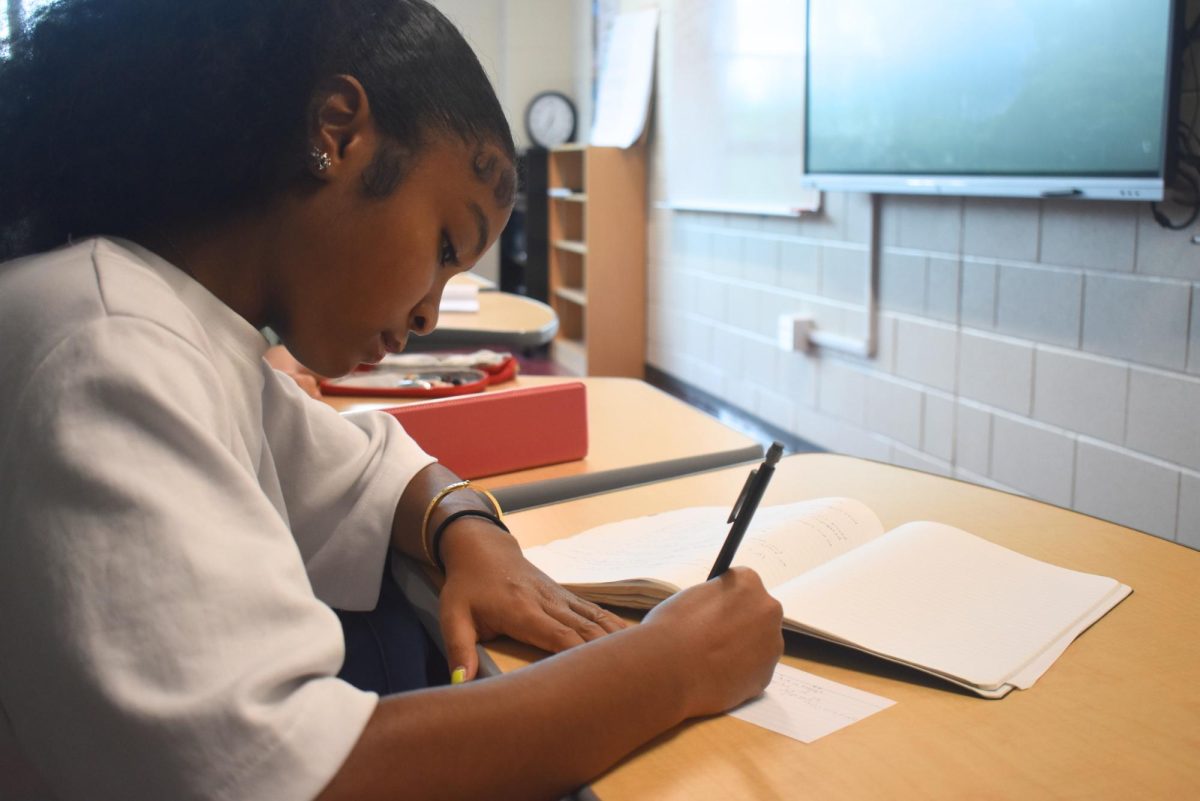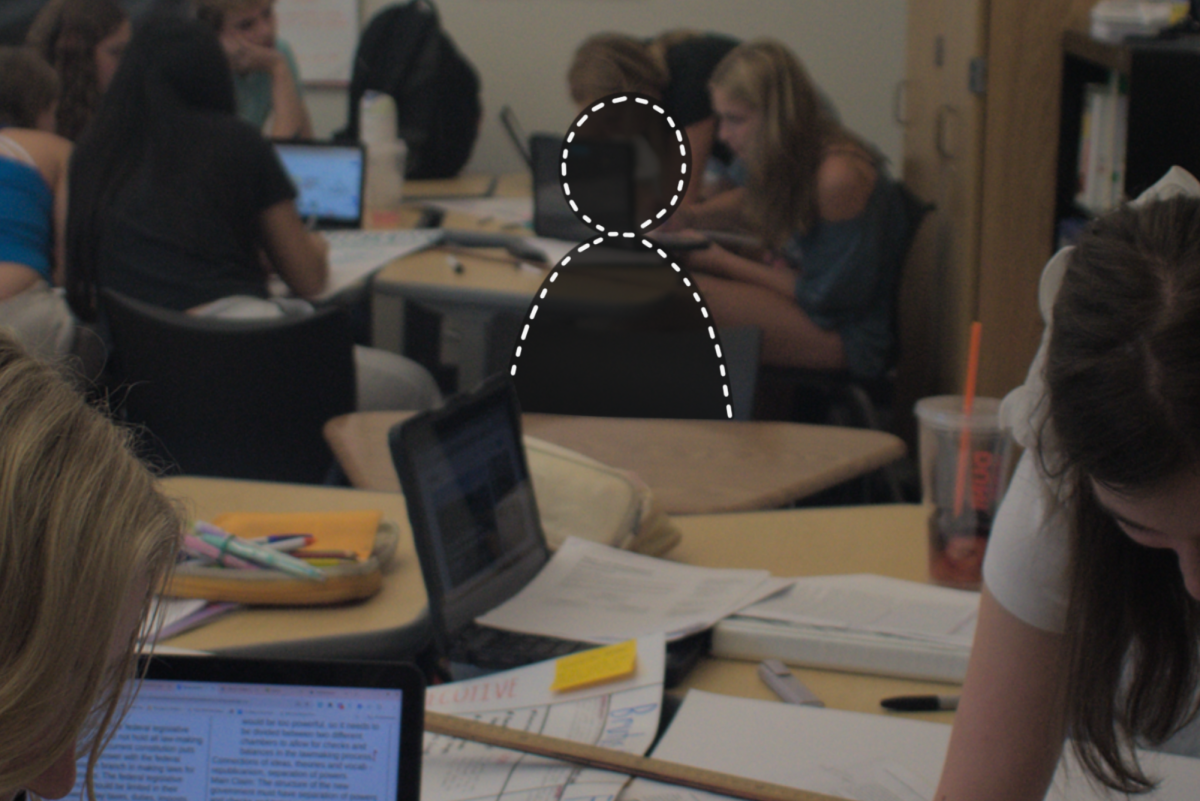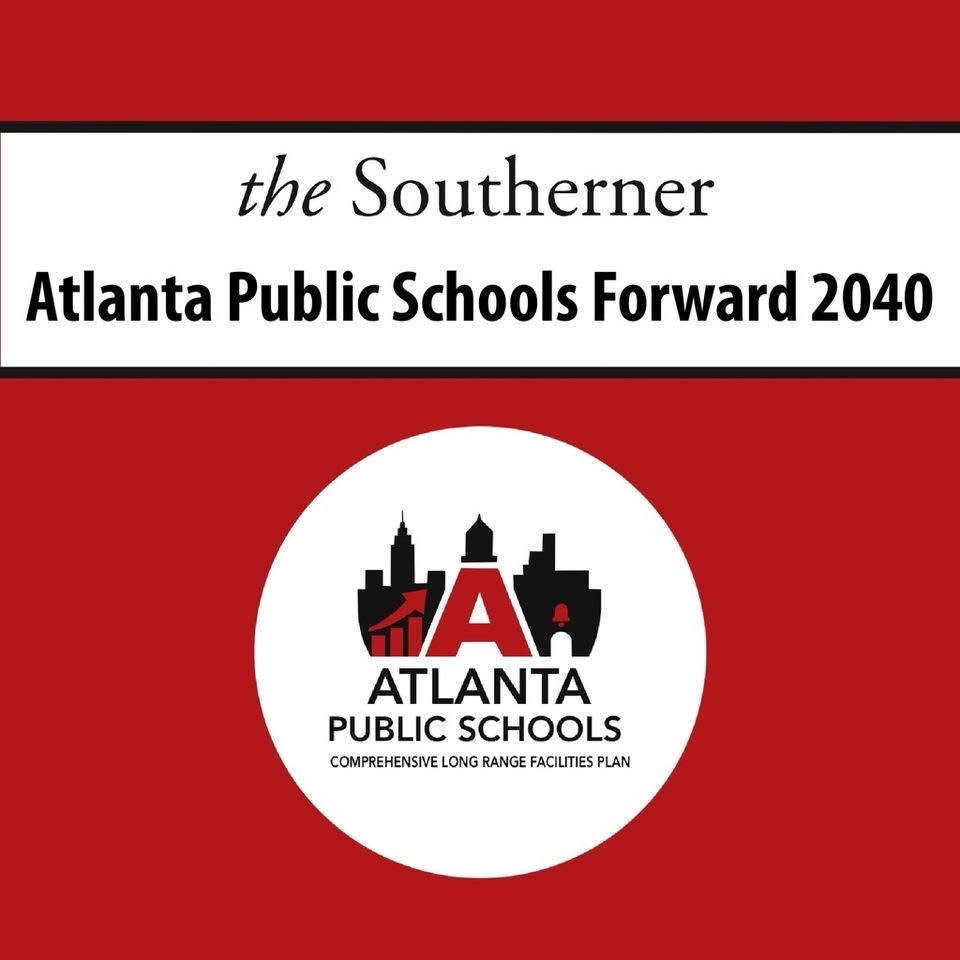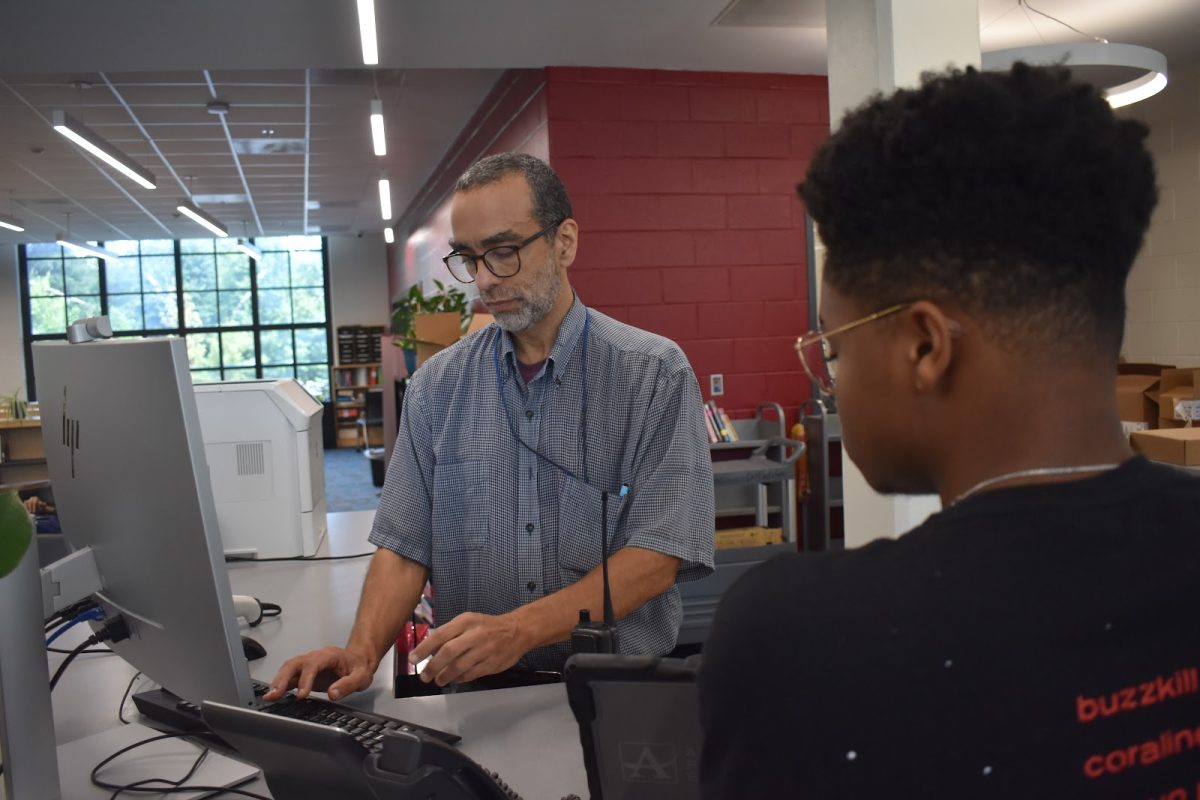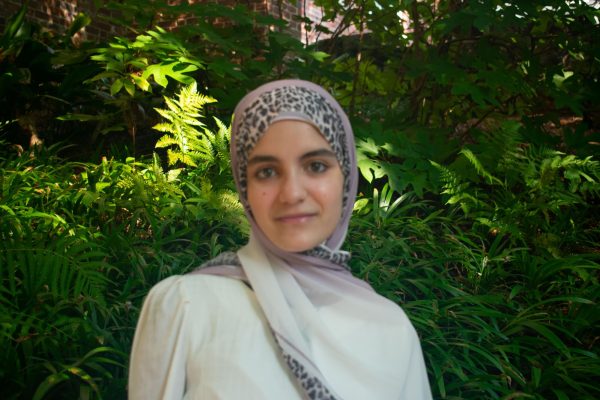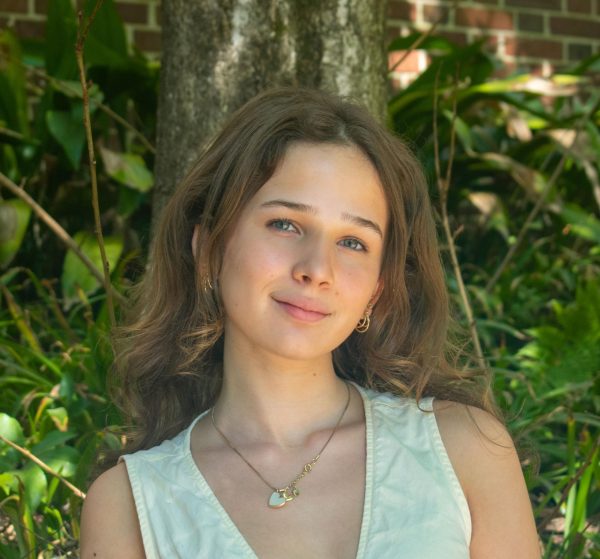Atlanta Public Schools hosted its first media day with Superintendent Dr. Bryan Johnson, opening the floor for communications students across APS to ask questions and voice concerns regarding the district.
Jasmine Mosley, the Media Relations Manager for APS, said the motive behind the April 3 event was to give students a platform within the district.
“The student media Q&A with Superintendent Bryan Johnson was a first of its kind opportunity for our talented APS student journalists to receive hands-on media experience,” Mosley said. “Our team felt it was important to incorporate student voices as we updated the community on the district’s progress and plan moving forward.”
Throughout the media day, Johnson emphasized that shaping the narrative around public education isn’t the job of one person alone, emphasizing the role that students and educators can play.
“It’s going to take all of us telling the positive story of what’s happening in school,” Johnson said. “I think the collective has to get intentional about telling our story and telling the great news that’s happening. [Student journalists] play a key role in what people think, perceive, and feel about nonprofit schools. So that’ll continue to be a focus for us.”
Midtown junior Kameryn Brown works as an editor for KnightView, Midtown’s broadcast program. She believes this event created a path for students from less-represented schools to be able to voice their concerns, reflecting an inviting environment.
“Students from underrepresented or underserved schools get a chance to directly share their concerns without having to go through a middleman,” Brown said. “It helps students feel genuinely heard because we’re speaking to the head person. Seeing a more personal side of the superintendent made me realize he’s working to meet each school’s needs as best as he can.”
Mays junior Kymani La Corbiniere said the superintendent’s demeanor was inviting and focused on collaboration.
“The superintendent appeared very approachable and very collaborative,” La Corbiniere said, “He was open to feedback, and he listened intently. He seemed genuinely invested in student success. His leadership style comes across as people-centered and proactive.”
Mosley believes that the opportunity for students to converse with the superintendent allows students to be more involved with the district’s decisions.
“Giving students an opportunity to discuss matters important to their school community with the superintendent is critical to the continued progress of Atlanta Public Schools,” Mosley said.
La Corbiniere said she appreciated the openness of the forum, even if not all concerns had clear solutions.
“I definitely feel like the session created a space where students felt heard,” La Corbiniere said. “There are not a lot of opportunities to sit down with the superintendent of your district. I think it was a great opportunity. While not every question had a definite solution, the superintendent’s willingness to engage openly with a strong step toward building trust and keeping lines of communication open.”
For Brown, this experience fostered a bond with the district’s leadership, even without major personal concerns.
“After meeting the superintendent, I definitely feel more connected,” Brown said. “Midtown feels pretty well-funded, so I didn’t have many concerns besides Yondr, but it was great to hear about the needs of other schools and see how open he was to working with students.”
During the event, La Corbiniere said students brought up a wide range of concerns, many tied to equity and access across schools. She appreciated that Johnson didn’t shy away from addressing them.
“Concerns were raised about access to Advanced Placement courses and courses in general, support for students with learning differences,” La Corbiniere said. “The quality of out of school programs; the superintendent mentioned upcoming curriculum reviews and potential events to expand enrichment opportunities.”
La Corbiniere believed the superintendent’s transparency helped build trust, especially when navigating complex topics.
“His answers seemed well informed and honest, even when addressing tough or uncomfortable topics, such as the Department of Education possibly shutting down,” La Corbiniere said. “He acknowledged challenges while also offering specific actions the district is taking to improve, which also just added transparency.”
Johnson also highlighted the district’s ongoing focus on instructional quality and said that strong classroom leadership remains the foundation for student success.
“I think one of the things that has happened in public education is a lot of different ideas have come in which all have merit,” Johnson said. “I think it’s important that we are intentional about the quality of instruction or teacher learning that takes place in classrooms. Nothing replaces a great teacher in front of you, a great advisor, a great coach. We’ve got to continue to make investments in teachers, staff and leaders.”
Another topic Johnson addressed was political tensions impacting K–12 education, specifically the role of the Department of Education in APS and the potential implications of its removal.
“Political ideologies have tried to put pressure on K-12 school districts, and I believe, ultimately, hurt students, but really can hurt everything within the organization,” Johnson said. “We see the things that are happening to people that we know. We’re very clear on where we saw and see the value of the Department of Education.”
Brown believes that there is still a need for broader outreach beyond a select few students.
“I think having more of these media days would be a great idea, but it would be even better if the superintendent actually visited schools,” Brown said. “The event was nice, but he only heard from a small group from each school. There are so many more voices and concerns out there that deserve to be heard.”



